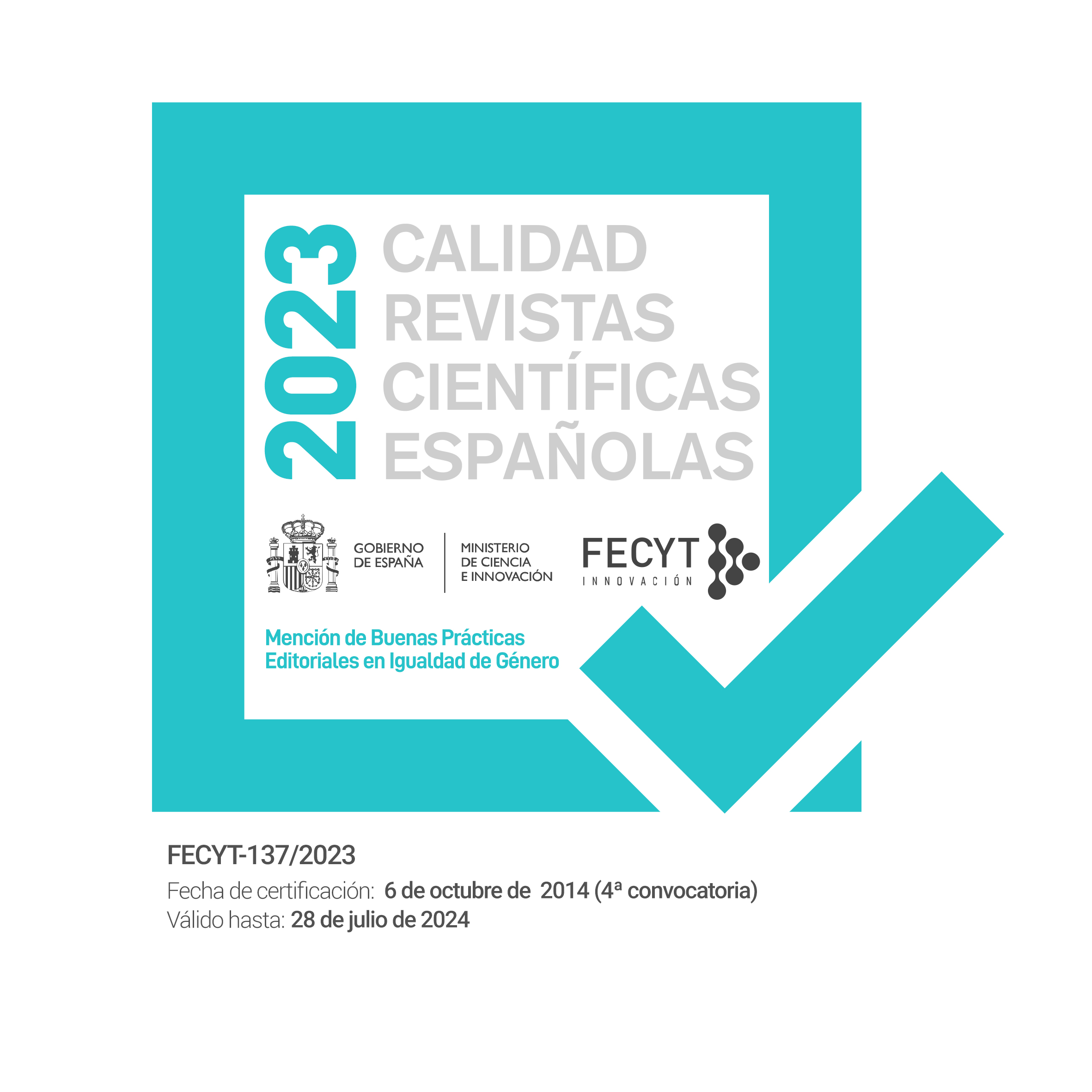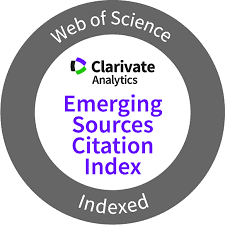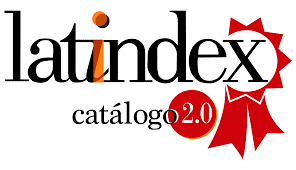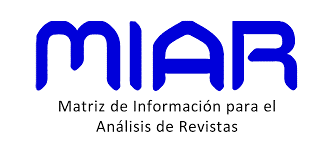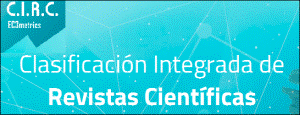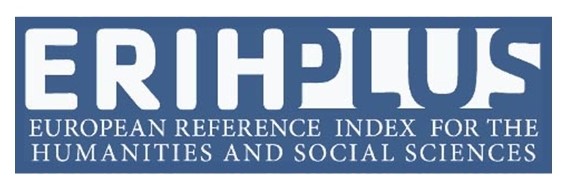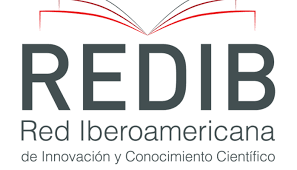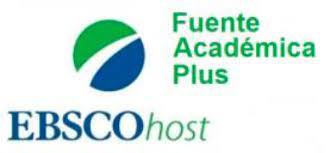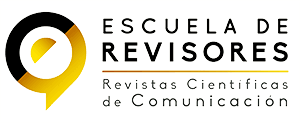Agenda temática, metodologías e impacto de la investigación sobre desinformación. Revisión sistemática de la literatura (2016-2020)
DOI:
https://doi.org/10.31921/doxacom.n33a854Palabras clave:
Desinformación, fake news, revisión sistemática, metodología de la investigación, impacto científicoResumen
Desde el año 2016, el análisis de la desinformación y las fake news se ha convertido en una de las principales tendencias en la investigación científica producida desde diferentes campos del saber. A fin de conocer cuáles son los temas, las áreas del conocimiento, los países de procedencia y los tipos de trabajo y metodologías de estos estudios, así como analizar su impacto, se presenta una revisión sistemática de la literatura realizada en la base de datos Web of Science. Se analizó un total de 605 artículos publicados entre 2016 y 2020. Se aplicaron cálculos estadísticos descriptivos e inferenciales no paramétricos (pruebas de Kruskal-Wallis y U de Mann-Whitney) con el objetivo de descubrir diferencias significativas en el número de citas recibidas en cada una de las variables anteriormente mencionadas. Las soluciones para afrontar el fenómeno de la desinformación son las temáticas más frecuentes, pero los trabajos sobre los patrones de propagación del contenido falso reciben más citas. Destaca la alta presencia de estudios de tipo cuantitativo, sobre todo procedentes del ámbito anglosajón. La temática de los trabajos es la única variable que resulta relevante en el impacto de este tipo de estudios.
Descargas
Citas
Agadjanian, A., Bakhru, N., Chi, V., Greenberg, D., Hollander, B., Hurt, A., & Woodruff, A. (2019). Counting the Pinocchios: The effect of summary fact-checking data on perceived accuracy and favorability of politicians. Research & Politics, 6(3). https://doi.org/10.1177/2053168019870351
Amazeen, M. A., & Bucy, E. P. (2019). Conferring resistance to digital disinformation: The inoculating influence of procedural news knowledge. Journal of Broadcasting & Electronic Media, 63(3), 415-432. https://doi.org/10.1080/08838151.2019.1653101
Aparici, R., & Marín, D. G. (2019). La posverdad: una cartografía de los medios, las redes y la política. Editorial Gedisa.
Baade, B. (2018). Fake News and International Law. European Journal of International Law, 29(4), 1357-1376. https://doi.org/10.1093/ejil/chy071
Bernal-Triviño, A., & Clares-Gavilán, J. (2019). Using mobile devices and social networks as checking channels of fake news. The case of Maldita. es. Profesional de la información, 28(3), e280312. https://doi.org/10.3145/epi.2019.may.12
Beskow, D. M., & Carley, K. M. (2019). Its all in a name: detecting and labeling bots by their name. Computational and Mathematical Organization Theory, 25(1), 24-35. https://doi.org/10.1007/s10588-018-09290-1
Bjola, C. (2018). The ethics of countering digital propaganda. Ethics & international affairs, 32(3), 305-315. https://doi.org/10.1017/S0892679418000436
Bjola, C., & Papadakis, K. (2020). Digital propaganda, counterpublics and the disruption of the public sphere: the Finnish approach to building digital resilience. Cambridge Review of International Affairs, 33(5), 638-666. https://doi.org/10.1080/09557571.2019.1704221
Bosworth, K. (2019). The people know best: Situating the counterexpertise of populist pipeline opposition movements. Annals of the American Association of Geographers, 109(2), 581-592. https://doi.org/10.1080/24694452.2018.1494538
Brereton, P., Kitchenham, B.A., Budgen, D., Turner, M., & Khalil, M. (2007). Lessons from applying the systematic literature review process within the software engineering domain. Journal of Systems and Software, 80(4), 571-583. https://doi.org/10.1016/j.jss.2006.07.009
Buckingham, D. (2019). Teaching media in a ‘post-truth’age: fake news, media bias and the challenge for media/digital literacy education/La enseñanza mediática en la era de la posverdad: fake news, sesgo mediático y el reto para la educación en materia de alfabetización mediática y digital. Cultura y Educación, 31(2), 213-231. https://doi.org/10.1080/11356405.2019.1603814
Carson, A., & Farhall, K. (2018). Understanding collaborative investigative journalism in a “post-truth” age. Journalism Studies, 19(13), 1899-1911. https://doi.org/10.1080/1461670X.2018.1494515
Castells, M. (2012). Redes de indignación y esperanza. Los movimientos sociales en la era de Internet. Alianza Editorial.
Centre for Reviews and Dissemination. (2009). Systematic Reviews. CRD’s guidance for undertaking reviews in health care. University of York.
Chan, M. P. S., Jones, C. R., Hall Jamieson, K., & Albarracín, D. (2017). Debunking: A meta-analysis of the psychological efficacy of messages countering misinformation. Psychological science, 28(11), 1531-1546. https://doi.org/10.1177/0956797617714579
Chen, Q., Srivastava, G., Parizi, R. M., Aloqaily, M., & Al Ridhawi, I. (2020). An incentive-aware blockchain-based solution for internet of fake media things. Information Processing & Management, 57(6). https://doi.org/10.1016/j.ipm.2020.102370
Citron, D.K. (2018). Extremist Speech, Compelled Conformity, and Censorship Creep. Notre Dame Law Review, 93, 1035-1072. https://cutt.ly/wbVP5lP
Codina, L. (2020). Cómo hacer revisiones bibliográficas tradicionales o sistemáticas utilizando bases de datos académicas: estudio de una serie de casos. Revista ORL, 11(2), 139-153. https://dx.doi.org/10.14201/orl.22977
Cook, J., Lewandowsky, S., & Ecker, U. K. (2017). Neutralizing misinformation through inoculation: Exposing misleading argumentation techniques reduces their influence. PLoS One, 12, e0175799. https://doi.org/10.1371/journal.pone.0175799
Del Vicario, M., Quattrociocchi, W., Scala, A. & Zollo, F. (2019). Polarization and Fake News: Early Warning of Potential Misinformation Targets. ACM Transactions on the Web, 13(2). https://doi.org/10.1145/3316809
Dahlgren, P. (2018). Media, knowledge and trust: The deepening epistemic crisis of democracy. Javnost-The Public, 25(1-2), 20-27. https://doi.org/10.1080/13183222.2018.1418819
Dickson B. (2017). How blockchain helps fight fake news and filter bubbles. The Next Web. Recuperado de: https://bit.ly/2OLsNvq
Elías, C. (2021). El periodismo como herramienta contra las fake news. En Elías, C. & Teira, D. (Eds.), Manual de periodismo y verificación de noticias en la era de las fake (pp. 19-57). UNED.
Endsley, M.R. (2018). Combating Information Attacks in the Age of the Internet: New Challenges for Cognitive Engineering. Human Factors, 60(8), 1081-1094. https://doi.org/10.1177/0018720818807357
Fairbanks, J., Fitch, N., Knauf, N. & Briscoe, E. (2018). Credibility assessment in the news: Do we need to read? Proceedings of the MIS2 Workshop held in conjuction with 11th International Conference on Web Search and Data Mining. https://cutt.ly/hbVHlsx
Fernández-Roldán, A. (2021). El papel de las plataformas digitales en la difusión de contraconocimiento. En Elías, C. & Teira, D. (Eds.), Manual de periodismo y verificación de noticias en la era de las fake (pp. 59-84). UNED.
Fletcher, R., Schifferes, S., & Thurman, N. (2020). Building the ‘Truthmeter’: Training algorithms to help journalists assess the credibility of social media sources. Convergence, 26(1), 19-34. https://doi.org/10.1177/1354856517714955
García-Marín, D. (2021). El whatsapp de Odiseo. Potencial desinformación y estrategias retóricas del audio fake. En Elías, C. & Teira, D. (Eds.), Manual de periodismo y verificación de noticias en la era de las fake (pp. 99-132). UNED.
Zollo, F., Bessi, A., Del Vicario, M., Scala, A., Caldarelli, G., Shekhtman, L. & Quattrociocchi, W. (2017). Debunking in a world of tribes. PloS one, 12(7), e0181821. https://doi.org/10.1371/journal.pone.0181821
Zubiaga, A., Aker, A., Bontcheva, K., Liakata, M. & Procter, M. (2018). Detection and Resolution of Rumours in Social Media: A Survey. ACM Computing Surveys, 51(2). https://doi.org/10.1145/3161603
Descargas
Publicado
Cómo citar
Número
Sección
Licencia
Derechos de autor 2021 David García-Marín

Esta obra está bajo una licencia internacional Creative Commons Atribución-NoComercial 4.0.




